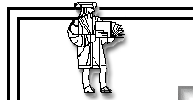 |
 |
|
Diocletian Aureus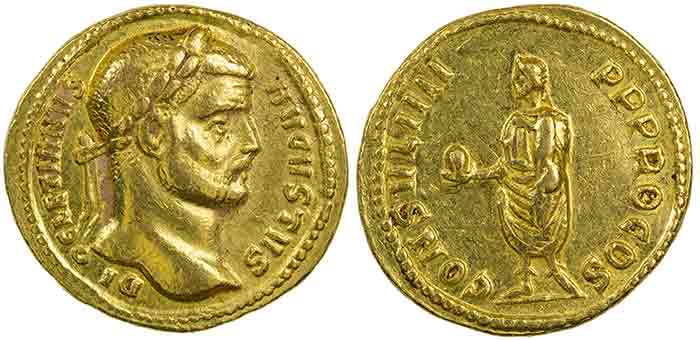
This Diocletian Aureus is a fake that has proven a dangerous fake with numerous examples having been sold by a variety of dealers in various countries DESCRIPTIONWEIGHT: 5.46 gramsSIZE: 20.3 x 20.6 mm STYLE: good MANUFACTURE: Die struck from false dies FIRST IMPRESSION: Good CHARACTERISTICSThis Diocletian Aureus is a fake that has proven a dangerous fake with numerous examples having been sold by a variety of dealers in various countries 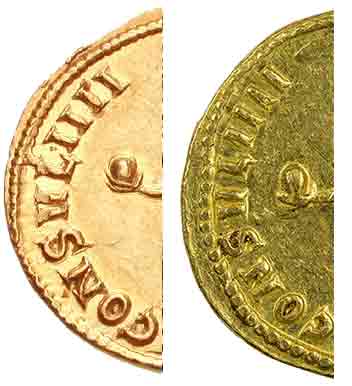
1) The lettering has rounded to flat tops, unlike genuine specimens which have a more V shaped top letters. This is a characteristic of a coin struck from a false impression die prepared from a genuine specimen. On the image above is a comparison of the lettering of a similar but genuine coin of this type on the left (courtesy of CNG coins) and that on the false coin on the right. This is not always easy to illustrate on an image, but look closely at the "N"'s and the difference between wedge shaped (genuine) and flat (false) is fairly clear. 2) The edges of the coin, which I am not able to illustrate, have a rough texture which is unexpected on aurei of this period. 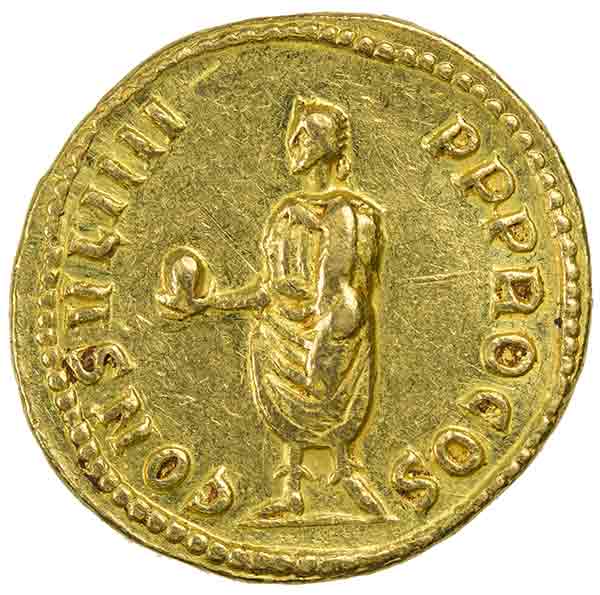 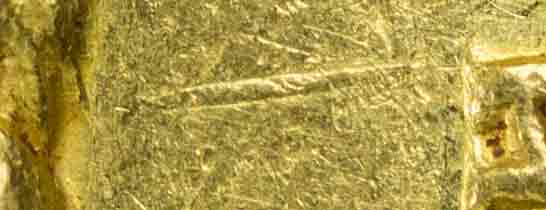
3) There is a significant scratch on the reverse to the right of Diocletian's elbow which by itself does not mean anything but I have located 6 other specimens of these dies which all exhibit an identical scratch. That means the original coin from which the false dies were created was scratched and the scratch transferred to the false die. When one looks at the scratch up close, it is clearly part of the strike, lacking the bright finish scratches after striking would have. 4) The pinkish encrustations on the obverse are soft and could be easily removed. Similar looking pinkish encrustations are not unusual on ancient gold coins but when encountered are normally extremely hard and very difficult to remove. This suggests those on this false coin were artificially applied. RELATIVE DANGERDEALER: High as several major dealers and auction houses have been fooled by these.COLLECTOR EXPERIENCED: High COLLECTOR NOVICE: Extreme The main feature that condemns this specimen is that scratch which is shared by other specimens from these dies. As you can see, depending on the light angle during photography the scratch might not be clear on a photograph (main top image) of might be very clear (lower image of the reverse). As yet the earliest specimen from these false dies I have located appeared on the market in 2009. Back to examples of fakes. Top of Page Copyright © 1997-2017 R & T Enterprises Ltd. |